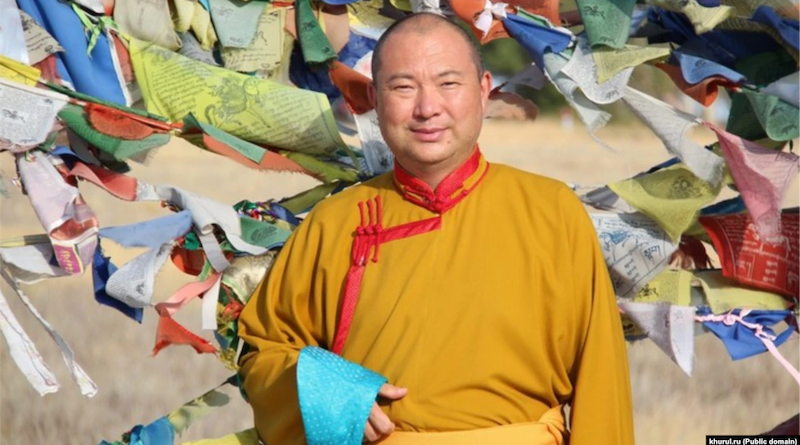Kremlin’s Dismissal Of Kalmyk Religious Leader Last Straw For Russia’s Buddhists – OpEd
By Paul Goble
The Kremlin’s decision to oust the leader of the Kalmyk Buddhists both because of his anti-war comments and in order to curry favor with China has outraged many in the three Buddhist nations of the Russian Federation, the Kalmyks, the Buryats and the Tuvins (windowoneurasia2.blogspot.com/2023/02/ouster-of-buddhist-leader-in-kalmykia.html and windowoneurasia2.blogspot.com/2023/01/buddhism-becoming-protest-religion-in.html).
And it is driving the most radical in all three to send men to fight Russian force in Ukraine and to organize in the diaspora and at home to defend their religion and seek independence for their nations, according to Daavr Dorzhin of the Congress of the Oyrat-Kalmyk People and the League of Free Nations (kasparov.ru/material.php?id=6425C3396F147).
Moscow’s unjustified ouster of Telo Tulku Tinpoche as head of the Kalmyk Buddhist community was the last straw for Russia’s Buddhists, who by their nature focus on internal improvement rather than fighting openly, the Oyrat-Kalmyk leader says. It was a direct insult to and attack on “each and every one of us” – and the usually quietist Buddhists are taking action.
“I am sure we will defeat Russia,” Dorzhin says. “We should not be dismissed as ‘a small people,’ and we should not be viewed as incapable of collective political action. We have much more courage, and Telo Tulku Rinpoche, with his criticism of Russian aggression against Ukraine, did more than all your religious leaders put together.”
Kalmyks and other Buddhist peoples have been fighting against Russia in Ukraine since 2014, they have been speaking out at international forums, and all these activities have only become stronger since Moscow expanded its invasion of Ukraine and put itself on course to be ever weaker.
Russia could have avoided the fate that is coming for it had it allowed the peoples of Russia to live their lives according to their own desires, but instead, it tried to continue the imperialism of the Russian and Soviet past; and thus put itself on course to disappear from the map of the world, Dorzhin says.
And he concludes: “Buddha is credited with a statement fully applicable to Putin’s Russia: ‘The body is worn out, the nest of diseases mortal, and this putrid pile is decomposing.’ … Time has passed, and even active repentance won’t save the sick man of Europe,” especially since no one can expect Russia to engage in that.

